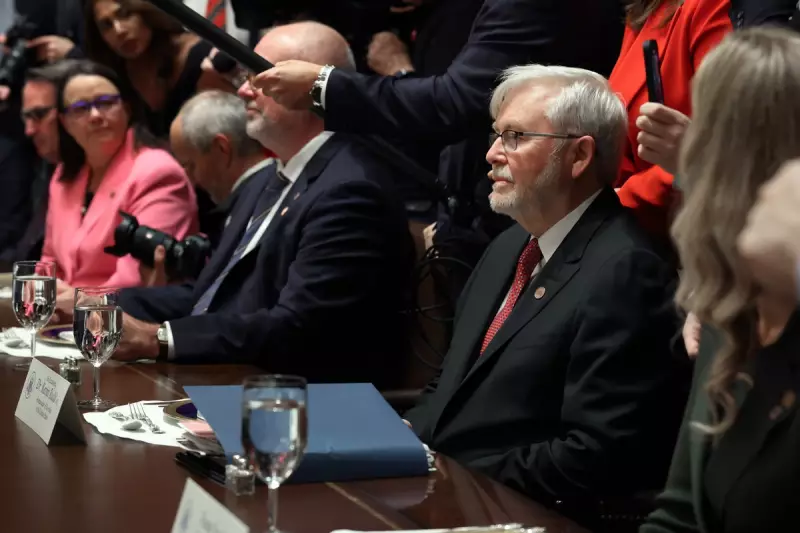
In a dramatic escalation of diplomatic tensions, former US President Donald Trump has launched a scathing attack on Australia's ambassador to Washington, Kevin Rudd, describing the former Australian prime minister in remarkably harsh terms that could significantly strain relations between the two allied nations.
Explosive Comments Rock Diplomatic Circles
During an exclusive interview with former British politician Nigel Farage on GB News, Trump didn't hold back when questioned about Mr Rudd, who currently serves as Australia's top diplomat in the United States. The Republican frontrunner delivered a character assessment that sent shockwaves through international political circles.
"He's not the brightest bulb," Trump declared, adding with characteristic bluntness, "I don't know him other than I hear he's a little bit nasty. I hear he's not the brightest bulb, but I don't know him."
A History of Tension Between Two Political Heavyweights
The roots of this diplomatic spat trace back to Mr Rudd's previous criticisms of Trump, particularly during the former president's initial White House term. Mr Rudd, who served as Australia's prime minister from 2007 to 2010 and again in 2013, had been openly critical of Trump's presidency and his potential return to power.
In a particularly memorable assessment, Mr Rudd had previously characterised Trump as "the most destructive president in history" and "a traitor to the West," comments that appear to have left a lasting impression on the former president.
Australian Government Rallies Behind Their Envoy
Prime Minister Anthony Albanese swiftly came to Mr Rudd's defence, delivering a robust endorsement of his ambassador's capabilities and performance. "Kevin Rudd is doing a great job," Mr Albanese stated emphatically, highlighting the former prime minister's extensive experience and qualifications for the crucial diplomatic role.
"He's a former prime minister, he has a PhD in this area from Oxford, he understands the US-China relationship," the Australian leader added, underscoring Mr Rudd's academic credentials and specialised knowledge in international relations.
Broader Implications for Australia-US Alliance
This extraordinary public confrontation raises serious questions about the future of the Australia-United States relationship should Trump secure a second term in the upcoming November election. The AUKUS security pact and other critical defence agreements between the nations could potentially face uncertainty amid such high-level diplomatic friction.
The timing of these comments is particularly significant, coming as world leaders and diplomats closely monitor the American political landscape and its potential impact on global alliances. The public nature of Trump's criticism represents a departure from conventional diplomatic protocol, where such assessments are typically communicated through private channels.
What Comes Next in This Diplomatic Drama?
As the political world digests these explosive remarks, attention now turns to how this public spat might influence:
- The effectiveness of Australia's diplomatic representation in Washington
- Future cooperation on shared security interests in the Pacific region
- The stability of intelligence-sharing arrangements between the two nations
- Broader Western alliance cohesion in an increasingly volatile global landscape
This development serves as a stark reminder of how personal relationships between leaders and diplomats can significantly impact international relations, potentially overriding decades of established alliance structures and diplomatic protocols.





